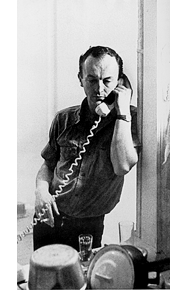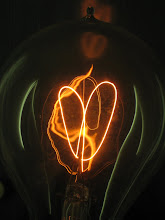Regardless, I’ve still managed to pick up a few books. This one is the first I’ve finished. I’m about 15 pages in two others that are rather complimentary to this one, but I can’t guarantee I’ll finish them (or even pick them up again).

The Polysyllabic Spree
by Nick Hornby
I first saw this at Powell’s and was drawn to the title. I don’t know much about Hornby apart from High Fidelity, the amazing movie adaptation with Mr. Cusack and that he’s put out quite a few other made-into-movie novels that were given more than liberal interpretation rights.
I was hoping, in some respect, that this would be Horby’s take on reading in general. The correspondence between what a writer reads and what he writes. A pocket-volume of rants and raves over what has happened to literature. Instead, it was a well organized series of monthly reads, purchases and an occasional excerpt.
I skipped all the excerpts.
It was good to see what he bought and actually managed to read. That others are obsessed with the collecting and gathering of texts despite having the time, energy, interest, sanity, etc to read them.
I found Horby charming and conversational, which was surprising considering how erudite and pretentious the Believer publication can be.
Here’s a selection of some of what grabbed me:
“I read 55 percent of the books I bought this month—five and a half out of ten. Two of the unread books, however, are volumes of poetry, and, to my way of thinking, poetry books work more like books of reference: They go up on the shelves straight away (as opposed to on the bedside table), to be taken down and dipped into every now and again. (And, before an outraged poets explode, I’d like to point out that I’m one of the seventy-three people in the world who buys poetry.) And anyway, anyone who is even contemplating ploughing straight through over a thousand pages of Lowell’s poetry clearly needs a cable TV subscription, or maybe even some friends, a relationship, and a job” (19).
“Just as frightening to anyone who writes (or who is connected intimately to a writer) is Yates’s willingness to cannibalize his life—friends, lovers, family, work—for his fiction: Just about everyone he has ever met was able to find a thinly disguised, and frequently horrific, version of themselves in a novel or a story somewhere” (32).
I’m particularly fond of the use of cannibalize here. Not so much a charming anecdote, but something I noted no less. And believe of many writers, truly.
“We are never allowed to forget that some books are badly written; we should remember that sometimes they’re badly read, too” (53).
“Being a reader is sort of like being president, except reading involves fewer state dinners, usually. You have this agendy you want to get through, but you get distracted by life events, e.g., books arriving in the mail/World War III, and you are temporarily deflected from your chosen path” (63).
“...[A]ll the books we own, both read and unread, are the fullest expression of self we have at our disposal. My music is me, too, of course—but as I only really like rock and roll and its mutations, huge chunks of me—my rarely examined operatic streak, for example—are unrepresented in my CD collection. And I don’t have the wall space or the money for all the art I would want, and my house is a shabby mess, ruined my children...But with each passing year, and with each whimsical purchase, our libraries become more and more able to articulate who we are, whether we read the books or not” (125).
And finally, I’ll link you to the Wikipedia entry. Honestly, you can save yourself the $9.50 and take a leisurely scan through this entry, which details it most accurately. Sure, you will not have contributed to the selected charities that split the proceeds, but in this economic climate you take what you can get.
Speaking of which—the library!
















